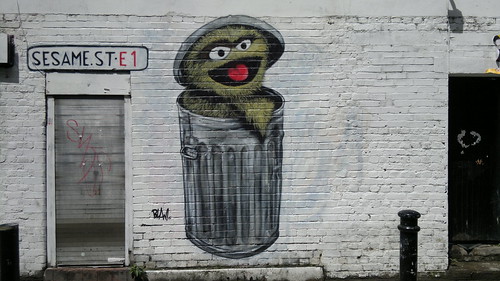It’s National Curmudgeon Day, which means you can embrace your inner grouch and grumble, complain, grouse, kvetch, and whine to your heart’s (dis)content. We’ll be taking a look at the history of curmudgeon words.
The word curmudgeon is an old one, originating in the 1570s, but where it comes from is unknown. The most famous suggestion, says World Wide Words, “is that of Dr Samuel Johnson in his Dictionary of 1755 [in which] he quoted an unknown correspondent as suggesting that it came from the French coeur méchant (evil or malicious heart).” However, this is now considered unlikely.
The Online Etymology Dictionary says “the first syllable may be cur ‘dog,’” or that the word may “have been borrowed from Gaelic” – muigean means “disagreeable person” – “with variant spelling of intensive prefix ker-,” a slang term “echoic of the sound of the fall of some heavy body.”
An older grouchy word is crab, which comes not from the crustacean but the sour crab apple, which in turn may come from Swedish dialect word skrabba, “fruit of the wild apple-tree,” according to the Oxford English Dictionary (OED). Crab came to refer to a sour person in the 1570s.
Malcontent, which now especially refers to “one who rebels against the established system,” also means “a chronically dissatisfied person,” and entered the English language from the French in the 1580s. Crosspatch came about around 1699, says the OED, and was formed by joining, you guessed it, cross and patch, where patch refers to “a ninny; a fool,” or “a harlequin.” This sense of patch may come from the Italian pazzo, “fool.”
Grump originated around 1727 and meant “ill-humor,” as part of the phrase, humps and grumps, or “surly remarks.” Then came the grumps, “a fit of ill-humor,” in 1844, and grump meaning “a person in ill humor” in 1900. According to the Online Etymology Dictionary, the word may be “an extended sense of grum ‘morose, surly,'” which is probably related to the Danish grum, “cruel.”
The word codger, referring to an eccentric or grumpy old man, is attested to 1756, and may be an alteration of cadger, “a person who gets a living by begging.” Crank seems to be a back-formation of cranky, which originated around 1807. In addition to “a grouchy person,” crank can also refer to “an eccentric person, especially one who is unduly zealous.”
The word grouch was born in the early 1890s, first referring to the grouchy mood itself, then soon after the grumpy person. The word was U.S. college students’ slang, says the Online Etymology Dictionary, possibly coming from the Middle English grucchen, “to grumble, complain.” A grouch bag is a “purse for carrying hidden money” and possibly the source of the nickname of Groucho Marx, “who supposedly carried his money in one to poker games.”
Finally, sourpuss is a 20th century grouch word, originating around 1937 as U.S. slang. Puss had been slang for face or mouth since about 1890, coming from the Irish pus, “lip, mouth.”
Still in a bad mood? Check out our list of the day.
[Photo: CC BY 2.0 by whatleydude]

James Thurber, in Lanterns & Lances, suggests the etymology of courmudgeon is that of a broken heart, rather than a malicious heart.